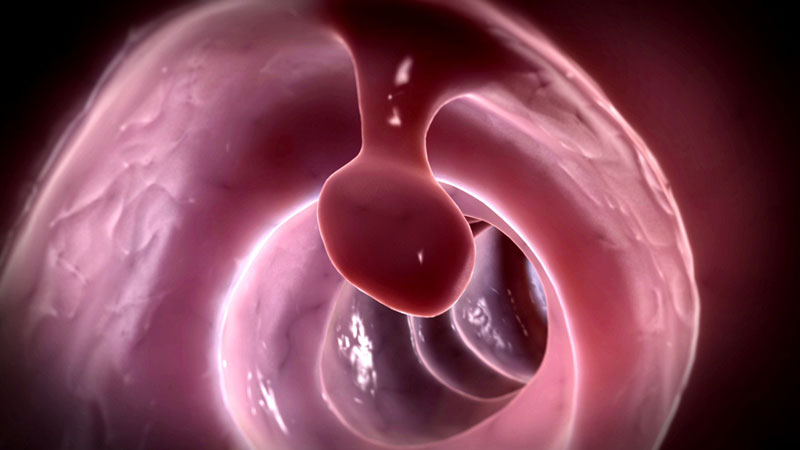A colon polyp is a small clump of cells that forms on the lining of the colon. Most colon polyps are harmless. But over time, some colon polyps can develop into colon cancer, which may be fatal when found in its later stages.
Anyone can develop colon polyps. You’re at higher risk if you’re 50 or older, are overweight or a smoker, or have a personal or family history of colon polyps or colon cancer.
Colon polyps often don’t cause symptoms. It’s important to have regular screening tests, such as a colonoscopy, because colon polyps found in the early stages can usually be removed safely and completely. The best prevention for colon cancer is regular screening for and removal of polyps.
Symptoms
Because most people with colon polyps do not experience any symptoms, you might not know you have a polyp until your doctor finds it during an examination of your colon.
However, some people with colon polyps may experience:
- Rectal bleeding. This can be a sign of colon polyps or cancer or other conditions, such as hemorrhoids or minor tears of the anus.
- Change in stool color. Blood can show up as red streaks in your stool or make stool appear black. A change in color may also be caused by certain foods, medications or dietary supplements.
- Change in bowel habits. Constipation or diarrhea that lasts longer than a week may indicate the presence of a larger colon polyp or cancer. However, a number of other conditions also can cause changes in bowel habits.
- Pain. A large colon polyp can partially obstruct your bowel, leading to crampy abdominal pain.
- Iron deficiency anemia. Bleeding from polyps can occur slowly over time, without visible blood in your stool. Chronic bleeding robs your body of the iron needed to produce the substance that allows red blood cells to carry oxygen to your body (hemoglobin). The result is iron deficiency anemia, which can make you feel tired and short of breath.
When to see a doctor
See your doctor if you experience:
- Abdominal pain
- Blood in your stool
- A change in your bowel habits that lasts longer than a week
You should be screened regularly for polyps if:
- You’re age 50 or older.
- You have risk factors, such as a family history of colon cancer. Some high-risk individuals should begin regular screening much earlier than age 50.
Ready to schedule your Colonoscopy in Northern Kentucky and Cincinnati? Tri-State Gastroenterology Associates is a physician owned and independent practice founded in 1982. Our team of Top Doctors, nurses and medical assistants live in this community and care for this community. We serve patients living in the Tri-State Area and are in network with most insurance plans.
It is our mission “To provide compassionate, high quality, cost-effective care to patients with gastrointestinal related problems.”
https://tristategastro.net/procedures/colonoscopy/https://tristategastro.net/schedule-appointment/
